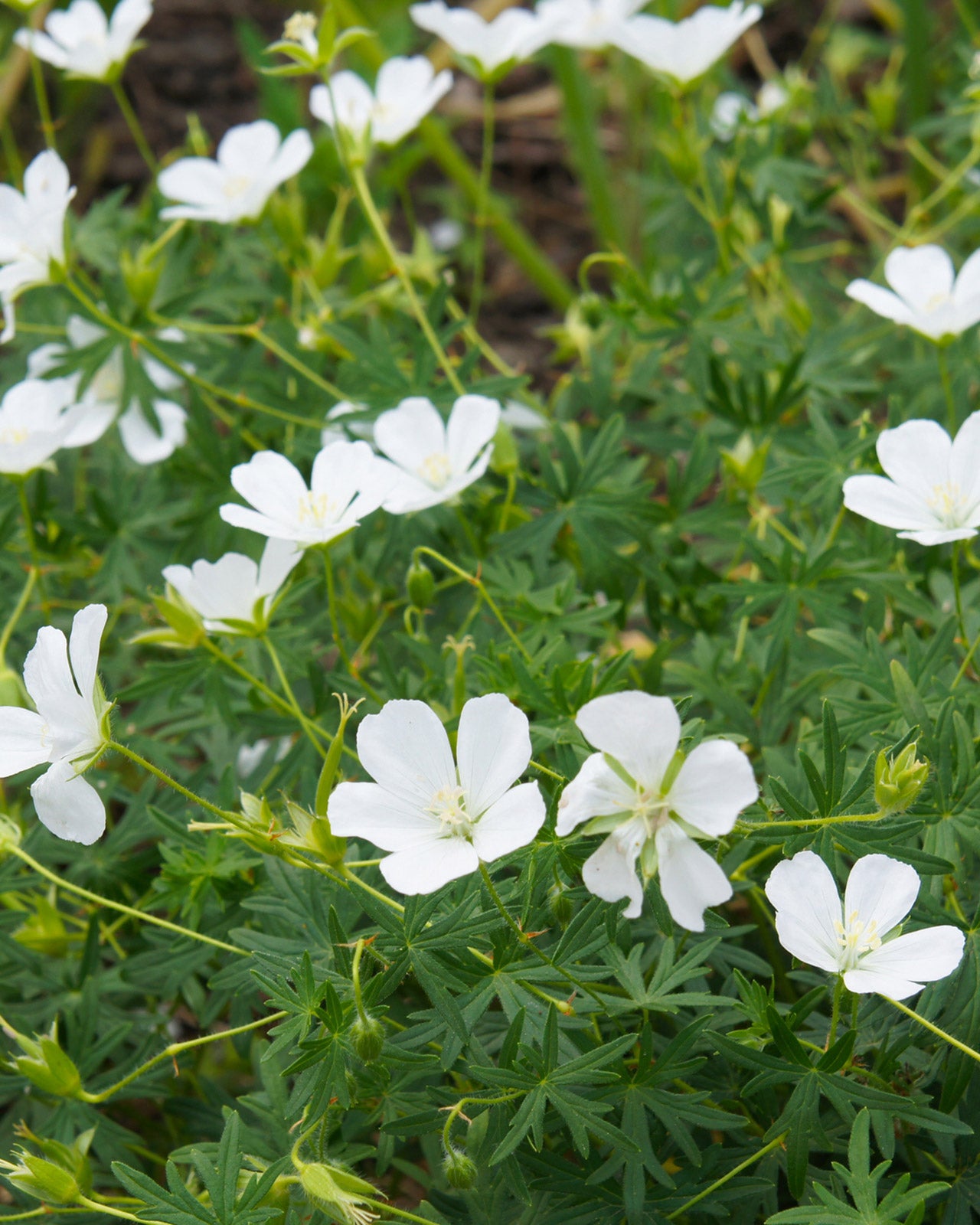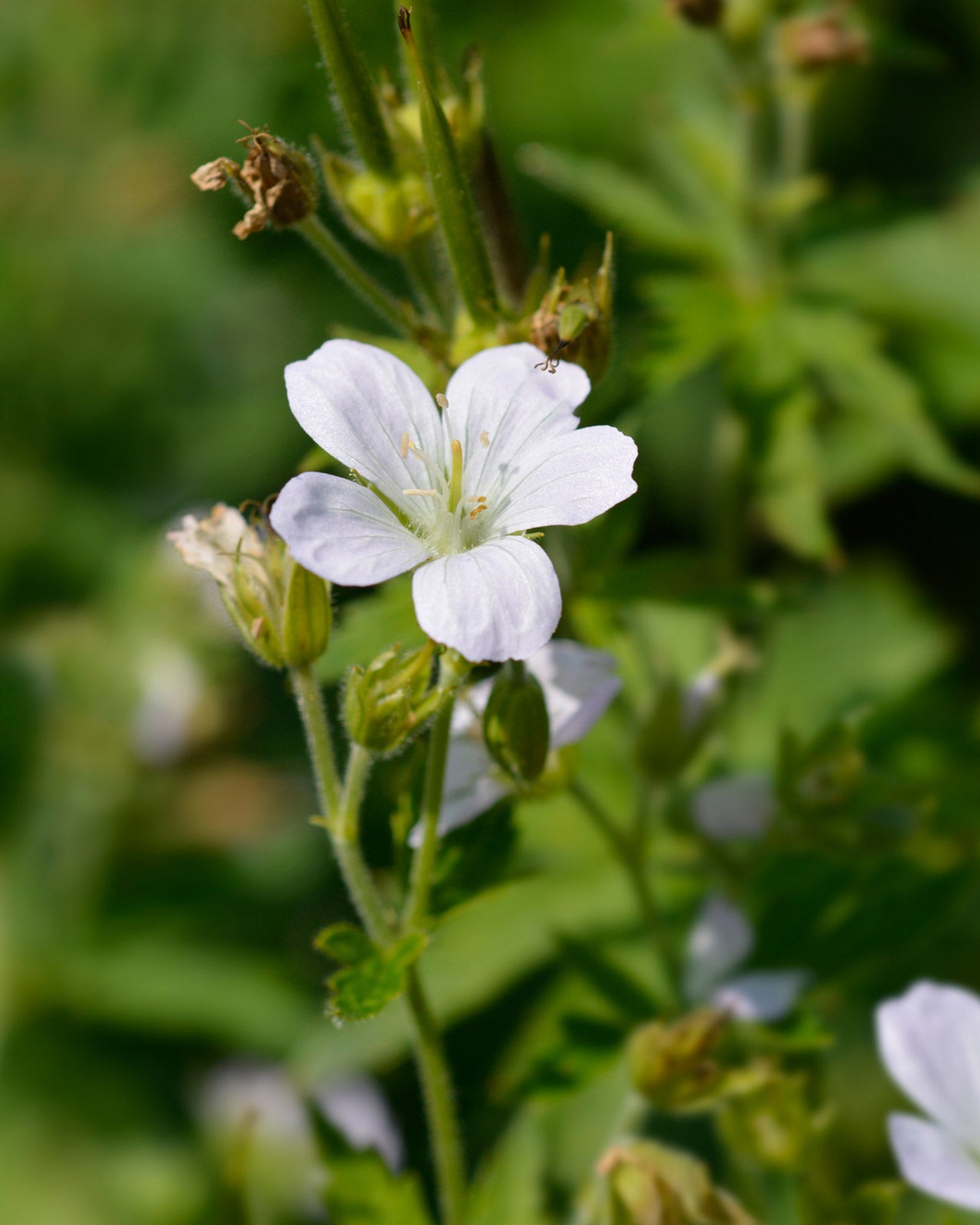

-
Why we like this plant
Geranium sanguineum 'Album' is a fantastic choice for adding soft, elegant colour to borders, cottage gardens, and rockeries. Its ability to thrive in dry, poor soils makes it particularly valuable for low-maintenance and drought-tolerant planting schemes. With its attractive foliage and long flowering season, it offers continuous interest throughout the growing season.
-
About this plant
Geranium sanguineum 'Album' is a beautiful white-flowered variety of the Bloody Cranesbill, known for its delicate, cup-shaped blooms that contrast elegantly against its finely divided, deep green foliage. Flowering from late spring to early autumn, this compact and hardy perennial forms a dense, spreading mound, making it an excellent choice for edging pathways, filling gaps in borders, or adding brightness to rockeries. Its foliage turns red in autumn, providing additional seasonal interest. Drought-tolerant once established and highly attractive to pollinators, this geranium is a low-maintenance, versatile addition to any garden.
-
Key features
- Pure white, cup-shaped flowers with delicate veining
- Compact and spreading habit, ideal for ground cover
- Finely cut deep green foliage, turning red in autumn
- Long flowering period from late spring to early autumn
- Excellent for pollinators, attracting bees and butterflies
-

Height and
spread -

Growth
habitLow-growing, spreading, clump-forming
-

Moisture
Moderate moisture; drought tolerant once established
-

Position in
the GardenBorders, rockeries, ground cover, cottage gardens, wildlife-friendly areas
Planting guide
- Plant in well-drained soil, enriched with organic matter
- Space plants around 30-40cm apart for good coverage
- Best planted in spring or autumn for strong establishment
Care tips
- Trim back lightly after flowering to encourage new growth
- Water well in dry spells but avoid overwatering
- Divide every few years to maintain vigour
- Deadheading can prolong flowering
- Apply a light mulch in spring to enrich the soil
Winter care
- Fully hardy; no winter protection required
- Foliage may die back in winter; cut back in late autumn or early spring
- Mulch lightly in colder regions for root insulation











